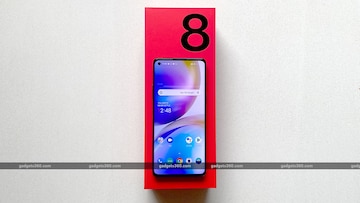CPU-Z and Cinebench results of what appears to be an engineering sample of Intel's upcoming Rocket Lake-S processor have leaked online. The preliminary results do not indicate much of an advantage over the Core i7-10700K yet as the sample has locked frequencies. These results also show considerable advantage the Ryzen 7 5800X has at the moment in both single and multi-core loads.
Intel's upcoming Rocket Lake-S is not too far away, which means leaks and performance numbers can be expected in the run up to the launch. For now, we are getting to see CPU-Z and Cinebench runs of what is purported to be a Rocket Lake-S engineering sample (ES) chip. We also get to see the chip in flesh thanks to a leak from @9550pro.
According to CPU-Z screenshots posted by @OneRaichu, the 8C/16T Rocket Lake-S sample could attain a boost clock of 4.5 GHz when tested on the MSI Z490I Unify (MSI 7C77) motherboard. It amassed a single-thread score of 597.3 and a multi-thread score of 5686.2. The OP also claims that this sample can attain 561 points in Cinebench R20 single and 5,214 points in Cinebench R20 multi while scoring 1,444 points in Cinebench R23 single.
A preliminary comparison of these scores against the Ryzen 7 5800X and the Core i7-10700K shows that AMD's offering leads the Rocket Lake-S ES by 11% in CPU-Z single-core while the ES chip is only 4.5% faster compared to the Core i7-10700K. The Ryzen 7 5800X is also 11% faster than Rocket Lake-S ES in Cinebench R20 single whereas the latter leads the Core i7-10700K by 8%.
Things start to get interesting in multi-core in which the Ryzen 7 5800X unsurprisingly leads by 19% in CPU-Z. In fact, even the Core i7-10700K has a slight edge over this particular ES part in this benchmark. A similar 17% lead is seen for the Ryzen 7 5800X in Cinebench R20 over the Rocket Lake-S ES. Here, the ES does manage to pull off a 4.82% lead over the Core i7-10700K.
While these preliminary results seem to indicate only nominal improvements over Comet Lake, one must remember that the frequencies of ES chips are locked, which prevents them from attaining higher boosts.
@OneRaichu also alludes to the possibility of a Core i9-11900K attaining over 5 GHz boost and up to 700 points in CPU-Z single, but further information is still under wraps for now.









0 Comments